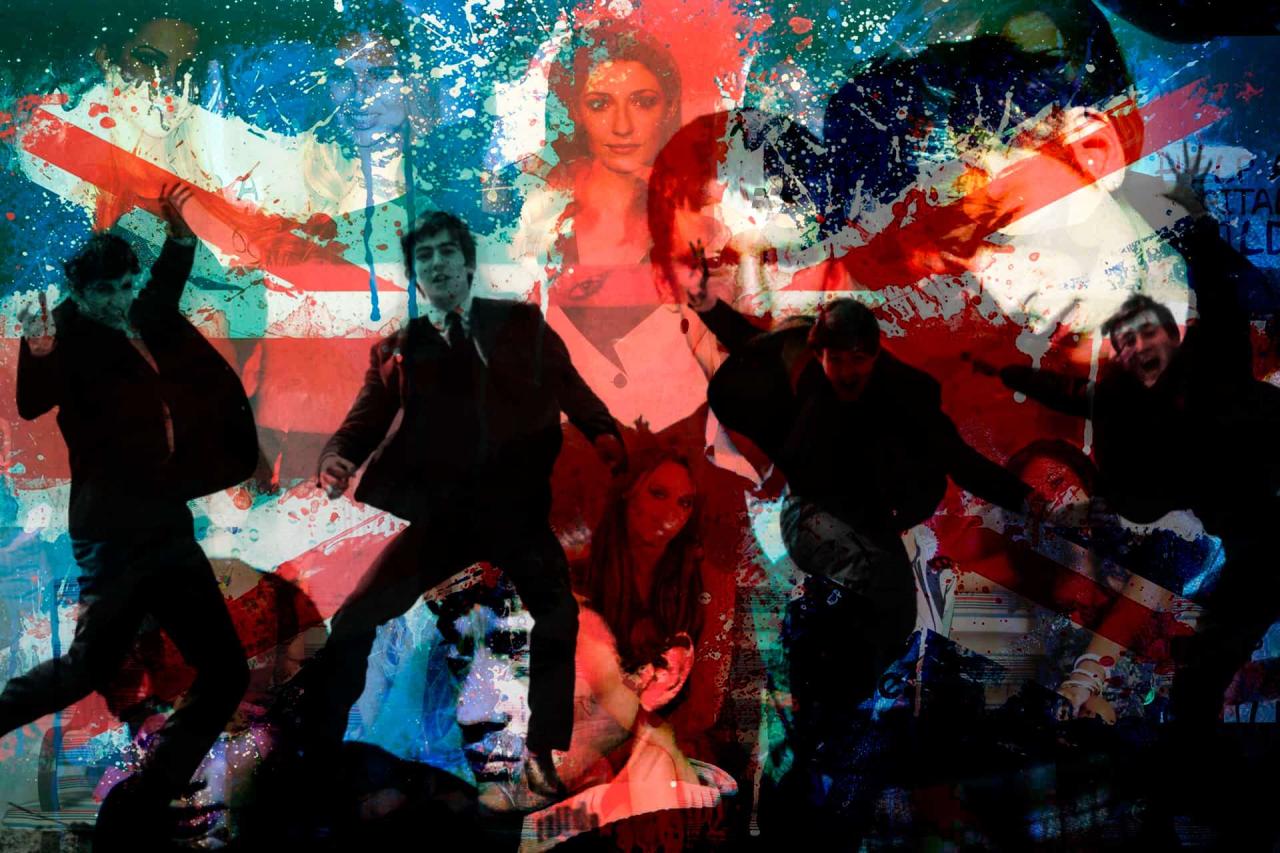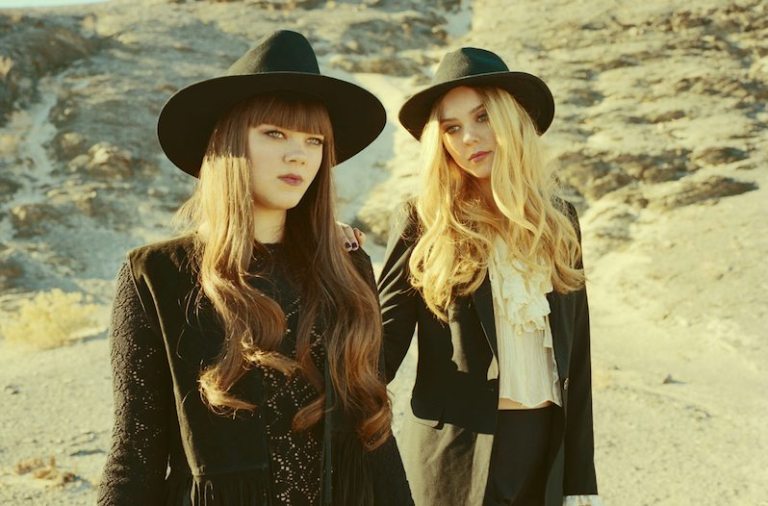
Why Country Music Is Booming in Britain
Why country music is booming in Britain? It’s a question that’s been on everyone’s lips lately, and honestly, it’s a fascinating story. From humble beginnings, country music has exploded in popularity across the pond, captivating British audiences in a way few could have predicted a decade ago. This isn’t just a niche trend; we’re talking about packed stadiums, soaring streaming numbers, and a whole generation discovering the soulful storytelling of a genre once considered distinctly American.
This surge isn’t accidental. A confluence of factors – the influence of American pop culture, the clever use of social media, the rise of homegrown British talent, and the undeniable appeal of country’s heartfelt lyrics – has created a perfect storm. We’ll delve into each element, exploring why this traditionally American genre has found such a welcoming home in the UK, transforming the British music scene in the process.
Influence of American Culture and Media
The surging popularity of country music in the UK isn’t happening in a vacuum. A significant contributing factor is the pervasive influence of American culture and media, which has steadily introduced and normalized the genre to British audiences over many years. This exposure, through various channels, has fostered a growing appreciation and understanding of country music’s appeal.American television shows and films have played a crucial role in subtly, yet effectively, showcasing country music.
Many popular shows feature country music in their soundtracks, often using it to underscore specific moods or scenes, thereby associating the genre with particular emotions and narratives. This repeated exposure, even in a passive way, can significantly shape audience perception. For example, a dramatic scene set in a rural American town might be underscored by a melancholic country ballad, subtly planting the seeds of appreciation for the genre in the viewer’s mind.
Similarly, many films, particularly those with rural or Southern settings, feature prominent country music soundtracks, further solidifying its association with specific cultural identities and storylines.
American Television and Film’s Role in Country Music’s UK Popularity
The use of country music in popular American television shows and films has normalized its presence in British media consumption. Shows like “Nashville,” while fictional, offered a detailed look into the country music industry and its associated culture, introducing many British viewers to the genre and its diverse subgenres. Similarly, countless films, from classic Westerns to modern dramas, have utilized country music to enhance their narratives, gradually familiarizing British audiences with its sounds and themes.
This consistent exposure, even without explicit promotion, has fostered a sense of familiarity and acceptance, paving the way for a more dedicated following. This passive exposure is a powerful tool in shaping musical preferences.
Social Media’s Impact on Country Music’s UK Growth, Why country music is booming in britain
Social media platforms like TikTok, Instagram, and YouTube have revolutionized the way music is discovered and consumed. These platforms provide a direct and immediate connection between artists and their fans, regardless of geographical location. Country artists leverage these platforms effectively, sharing snippets of their music, behind-the-scenes glimpses into their lives, and engaging directly with their followers. The viral nature of social media allows songs to reach a wider audience organically, transcending traditional media limitations.
So, why’s country music suddenly huge in Britain? I think it’s a combination of factors, including the genre’s increasing global appeal and the rise of artists like Zach Bryan. It makes you wonder if Britain is becoming, as the worlds next country suggests, a new hub for the genre. Ultimately, the relatable storytelling and catchy melodies are likely the main reasons behind country’s UK boom.
A catchy country tune can quickly become a trending sound, catapulting lesser-known artists to international recognition. This direct engagement and organic virality are key factors in country music’s current UK boom.
British Media’s Portrayal of Country Music Compared to American Media
While American media often portrays country music as intrinsically linked to specific cultural and regional identities (often Southern US), British media’s representation has been more varied. While there’s certainly acknowledgement of its American origins, the focus in the UK media is often less on the genre’s regional associations and more on its universal themes of love, loss, and storytelling.
This less regionally-defined approach might contribute to its broader appeal in the UK, making it accessible to a wider audience that isn’t necessarily steeped in American Southern culture. This shift in focus, away from specific cultural contexts, highlights the genre’s adaptability and its capacity to resonate with diverse audiences across geographical boundaries.
The Appeal of Country Music to British Audiences: Why Country Music Is Booming In Britain

Country music’s burgeoning popularity in the UK isn’t just a fleeting trend; it represents a genuine shift in musical tastes. While the influence of American culture undeniably plays a role, a deeper dive reveals that specific elements of the genre resonate deeply with British listeners, creating a devoted fanbase that transcends simple cultural osmosis. Understanding this appeal requires looking beyond the surface and examining the unique connection between the music and its British audience.
The raw emotionality and storytelling at the heart of country music are key factors in its appeal. British audiences, known for their appreciation of heartfelt lyrics and honest narratives, find a kinship with the often melancholic, yet ultimately uplifting, themes explored in many country songs. This aligns with a broader trend in British popular music towards more introspective and emotionally resonant songwriting, moving away from purely upbeat or commercially driven pop.
Demographic Breakdown of Country Music Fans in Britain
While precise figures are difficult to obtain due to the complexities of music consumption data, anecdotal evidence and observations from industry sources suggest a diverse fanbase. It’s not solely an older demographic, as is sometimes assumed. While there’s a strong contingent of older listeners who grew up with country’s established stars, younger generations are also embracing the genre, drawn to its authenticity and the diverse subgenres that have emerged.
So, why’s country music suddenly huge in Britain? Maybe it’s the relatable storytelling, the catchy melodies, or even a yearning for something authentic. It’s a fascinating shift, and makes you wonder about other unexpected trends – like the current investment climate; I’ve been reading a great article on whether can bonds keep beating stocks , which is a totally different kind of boom! But back to country – perhaps the economic uncertainty is making people crave simpler pleasures, and that includes music.
| Demographic | Percentage (Estimate) | Key Preferences | Reasons for Appeal |
|---|---|---|---|
| Age 25-44 | 40% | Classic Country, Americana, Outlaw Country | Nostalgia, relatable storytelling, strong vocals |
| Age 45-65 | 35% | Traditional Country, Country Pop | Familiar sounds, established artists, connection to American culture |
| Age 18-24 | 20% | Modern Country, Country-infused Pop, Indie Country | Upbeat tempos, catchy melodies, diverse soundscapes |
| Location | N/A (Data not readily available) | Varied across the UK, with higher concentrations potentially in rural areas and major cities with large American expat communities. | Regional variations in musical tastes, accessibility through streaming services, and live music venues. |
The Role of British Country Artists
The burgeoning popularity of country music in the UK isn’t solely a reflection of imported American sounds. A vital element of this growth story is the emergence and increasing success of homegrown British country artists. These musicians are not simply imitating their American counterparts; they’re forging a unique British country sound, blending traditional elements with distinctly local influences, and creating a genre that resonates deeply with UK audiences.
This blend of familiar and fresh is a key factor in the genre’s widespread appeal.The styles of British country artists often differ subtly, yet significantly, from their American counterparts. While American country frequently features a strong emphasis on storytelling narratives focused on rural life and traditional values, British country artists often incorporate elements of folk, rock, and even pop, reflecting the diverse musical landscape of the UK.
This fusion creates a sound that is both familiar and innovative, attracting listeners who might not typically gravitate towards more traditional country styles. The lyrical content also often reflects the British experience, dealing with themes of everyday life, relationships, and social commentary specific to the UK context.
Styles of British and American Country Music Compared
American country music often maintains a strong connection to its roots in Appalachian folk music, bluegrass, and honky-tonk. Instrumentation frequently includes steel guitar, banjo, and fiddle, creating a characteristic twangy sound. Lyrical themes often revolve around rural life, heartbreak, and working-class struggles. In contrast, British country music, while embracing these traditional elements, often incorporates influences from other genres, resulting in a broader, more eclectic sound.
The instrumentation might include electric guitars, keyboards, and even elements of Celtic folk music, creating a unique sonic tapestry. The lyrical content often reflects a more contemporary British perspective, addressing issues relevant to modern UK life.
So, why’s country music suddenly huge in Britain? Maybe it’s the comforting familiarity in a world that often feels chaotic. Even amidst the frustrations of everyday life, like dealing with the the scourge of stolen bikes in Britain , people crave that sense of grounded simplicity country music offers. It’s a soundtrack to resilience, perfectly reflecting the British spirit of carrying on, even when things get tough.
And that, I think, is why it’s resonating so strongly.
Successful British Country Artists and Their Contributions
The rise of British country music wouldn’t be possible without the significant contributions of several talented artists. Their success has helped to establish the genre in the UK and broaden its appeal to a wider audience.
- Ward Thomas: This twin sister duo has achieved significant commercial success, blending country pop with powerful vocals and relatable lyrics, expanding the appeal of country music beyond its traditional fanbase.
- The Shires: This duo, comprised of Ben Earle and Crissie Rhodes, have achieved numerous chart successes, combining traditional country sounds with modern production techniques, thus bridging the gap between established country fans and new listeners.
- Sarah Darling: Known for her powerful vocals and emotionally resonant songs, Sarah Darling blends traditional country sounds with a touch of Americana, creating a unique and deeply personal style that has resonated with UK audiences.
- Robert Vincent: This artist offers a more rootsy, bluesy take on country music, showcasing a raw and honest style that appeals to listeners who appreciate a more authentic, stripped-back approach.
- Danny McMahon: A rising star in the UK country scene, Danny McMahon demonstrates a blend of traditional country instrumentation and modern songwriting, creating a sound that is both familiar and fresh.
The Live Music Scene and Festivals
The burgeoning popularity of country music in Britain isn’t just a radio phenomenon; it’s a vibrant, growing live music scene. From intimate pub gigs to large-scale festivals, the opportunities to experience country music live have exploded in recent years, mirroring the genre’s overall rise in popularity. This increase in live performances has not only provided a platform for both established and emerging artists but also significantly boosted the British economy.The growth of country music festivals and live performances in Britain is a testament to the genre’s increasing mainstream appeal.
Just a decade ago, dedicated country music festivals were relatively scarce. Now, numerous festivals, both large and small, cater to the expanding fanbase, drawing crowds from across the UK and even internationally. This growth is fueled by a combination of factors, including the increased availability of talented British country artists, the success of American country stars touring the UK, and a growing appetite amongst British audiences for live music experiences.
The rise of smaller, more regionally focused events also caters to a diverse range of audiences and allows for more intimate musical encounters.
A Hypothetical British Country Music Festival Poster Design
Imagine a poster for “Country Crossroads,” a hypothetical British country music festival. The design would feature a vibrant, stylized image of a crossroads, evoking the classic imagery of country music. Instead of literal representation, it would be an artistic interpretation, perhaps using bold, contrasting colours – deep blues and warm oranges – to create a sense of movement and energy.
Silhouetted figures of musicians playing instruments would be subtly incorporated into the design of the crossroads, creating a dynamic visual. The festival name, “Country Crossroads,” would be prominently displayed in a bold, rustic font, suggesting a blend of tradition and modernity. Smaller text would list key headliners, perhaps incorporating a design element like a vintage-style concert ticket or a worn guitar pick.
The overall aesthetic would aim for a visually arresting, yet classic, feel, balancing the energy of a modern festival with the traditional roots of country music. The bottom of the poster would feature the date, location, and website for ticket purchases, all in a clear, easy-to-read font.
The Economic Impact of Country Music Concerts and Festivals
The economic impact of the burgeoning country music scene in Britain is substantial and multifaceted. Large-scale festivals generate revenue through ticket sales, merchandise, food and beverage sales, and accommodation bookings in the surrounding areas. This influx of money benefits local businesses, creating jobs and stimulating economic growth in the host communities. Smaller concerts also contribute significantly, supporting venues, local businesses, and the artists themselves.
The increased tourism associated with these events further boosts the economy. For example, the influx of visitors to a large country music festival could generate millions of pounds in revenue for the local area, encompassing everything from hotels and restaurants to transport and retail. This economic ripple effect underscores the significant contribution of country music to the British economy.
The success of these events demonstrates the potential for further growth and investment in the sector.
Comparison with Other Genres

Country music’s surge in popularity in Britain presents a fascinating case study in genre dynamics. While pop and rock have historically dominated the British music charts, country’s recent growth suggests a shift in listener preferences and market segmentation. The rise isn’t necessarily a complete displacement, but rather a significant expansion of the overall musical landscape, carving out a distinct and increasingly influential space.The unique position country music holds stems from its blend of familiar and novel elements for British audiences.
The storytelling tradition, often relatable across cultures, combined with the genre’s increasingly diverse sounds and subgenres (think Americana, bluegrass, and even country-pop fusions), appeals to a broad spectrum beyond the typical “country” stereotype. This broad appeal allows it to compete not just with other established genres but also to attract listeners who might not typically identify with a single genre.
It’s less about replacing pop or rock, and more about adding another vibrant colour to the British musical palette.
Country Music’s Impact on Other Genres
The country music boom is subtly, but arguably, influencing other genres in Britain. We’re seeing a cross-pollination, with elements of country instrumentation and storytelling techniques creeping into other musical styles. For example, some pop artists are incorporating banjo or acoustic guitar into their arrangements, while singer-songwriters are adopting more narrative-driven lyrical approaches. This isn’t necessarily a case of one genre “dominating” another, but a more organic blending of sounds and styles, enriching the overall musical tapestry.
The success of country music is demonstrating the viability of a genre that emphasizes strong songwriting and authentic storytelling, potentially inspiring artists in other genres to prioritize these elements. The rise of Americana, a genre with strong country roots but with a broader appeal, further exemplifies this crossover. Think of artists like The Lumineers, who blend folk, indie, and country influences to great success.
Their popularity showcases the blurring of genre lines and the influence of country’s narrative power on a wider audience.
So, why is country music having its moment in Britain? The answer, as we’ve seen, isn’t simple. It’s a blend of global cultural exchange, savvy marketing, a relatable musical style, and the emergence of incredibly talented British artists. This isn’t just a passing fad; it’s a genuine cultural shift, enriching the British music landscape and proving that great music transcends borders and expectations.
The future looks bright for country in the UK, and I, for one, can’t wait to see what happens next.

